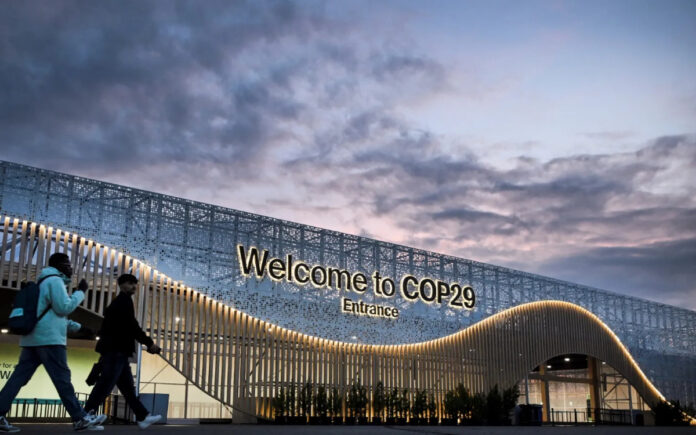Baku: The COP29 climate summit in Baku, Azerbaijan, wrapped up with a deal on climate finance two days past its deadline after two weeks of tense negotiations. Here are some key takeaways from the event:
Climate Finance Remains Insufficient
One of the main agenda items at COP29 was establishing a new global climate finance target. Nations debated fiercely over the issue for two weeks. While a deal was reached to set a target of $300 billion per year by 2035, many developing nations expressed disappointment, calling the amount insufficient. They warned that a 2035 deadline would delay the transition to clean energy and hinder efforts to address the climate crisis. Some countries, including India, also criticized wealthy nations for proposing that developing countries contribute to the target.
Trump’s Election Clouds the Atmosphere
Despite not yet taking office, the recent election of climate skeptic Donald Trump cast a shadow over COP29. Trump’s victory and his vows to withdraw the U.S. from global climate initiatives soured the summit’s mood. His appointment of another climate skeptic as energy secretary only amplified concerns. With the U.S. unlikely to contribute meaningfully to climate finance, negotiations were further hampered, with the world’s largest historical polluter offering little in the way of support.
Carbon Credits Get the Green Light
After nearly a decade of negotiations, COP29 agreed on a rulebook for carbon credits, allowing countries to establish credits to fund climate projects, offset emissions, or trade them on markets. While smaller details like transparency obligations and registry structure still need to be finalized, proponents hope that this move will draw billions in investment to climate action, offering a new tool to combat emissions.
COP Process Faces Growing Doubts
Despite years of climate agreements, the rising levels of greenhouse gas emissions and global temperatures have raised serious concerns. As countries experience increasingly severe weather events, many warned that progress has been too slow to avoid a climate crisis. This year is on track to become the warmest on record, with the impacts of climate change intensifying faster than expected. Widespread flooding in Africa, deadly landslides in Asia, and devastating droughts in South America have already caused significant loss of life and economic damage. These extreme events underscore the urgency of stronger climate action.
Also Read | Thousands Rally in Barcelona for Affordable Rents Amid Rising Housing Costs
Trade Tensions Take Center Stage
Developing countries at COP29 pushed for discussions about climate-related trade barriers, arguing that costly trade policies imposed by wealthy nations are hindering their ability to invest in green technologies. A key point of contention was Europe’s proposed Carbon Border Adjustment Mechanism (CBAM), but fears of broad tariffs under Trump’s policies added further tension. The UN climate body agreed to include this issue on the agenda for future summits.
Also Read | Elon Musk Hails India’s Electoral Efficiency, Slams U.S. Slow Count
Fossil Fuel Interests Dominate Discussions
COP29 marked the third consecutive climate summit held in a fossil fuel-producing country, with the OPEC secretary general and Azerbaijan’s president calling oil and gas resources “a gift from God”. However, the summit failed to take significant steps toward fulfilling last year’s COP28 pledge to phase out fossil fuels and triple renewable energy capacity by 2030. Many negotiators saw this as a setback, with fossil fuel interests overshadowing the climate agenda and undermining meaningful progress.



